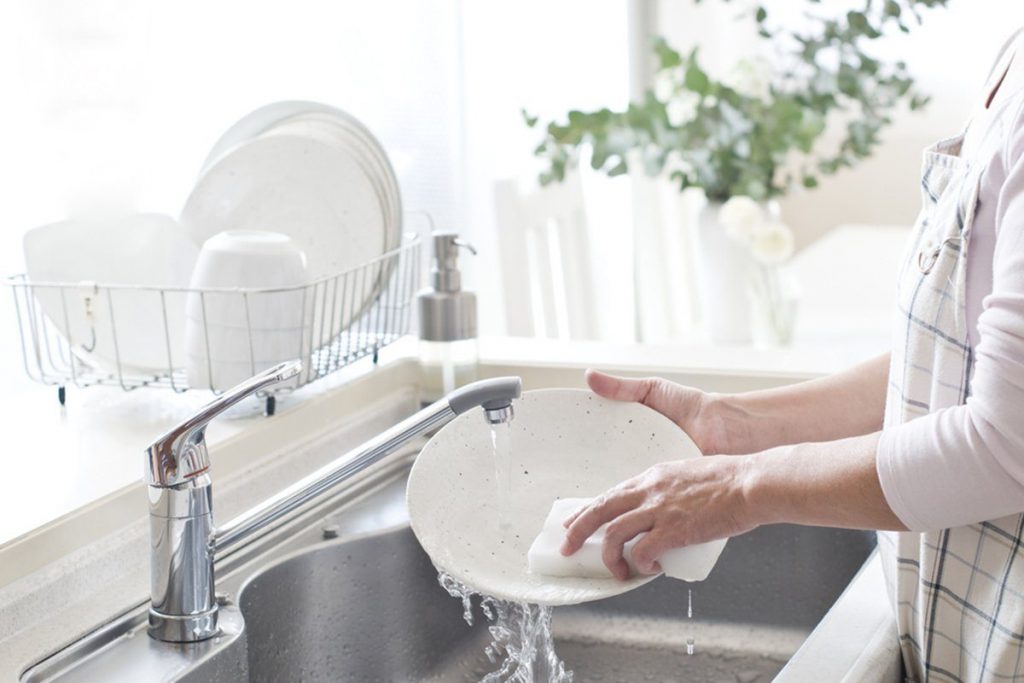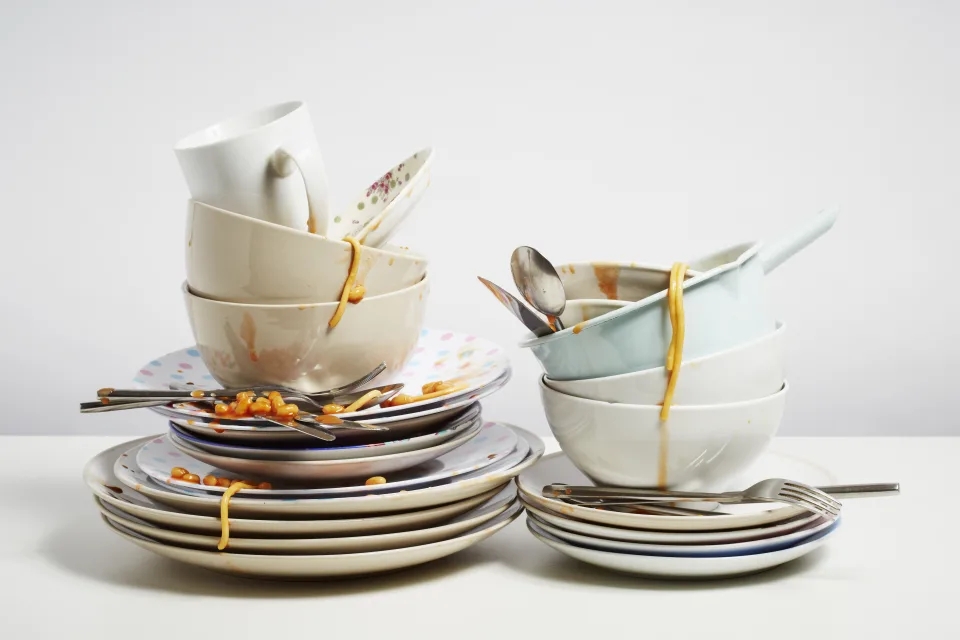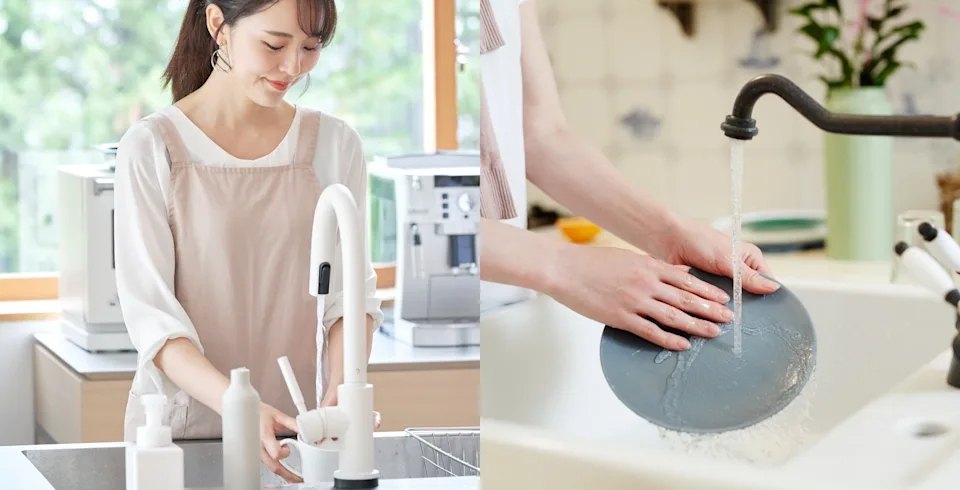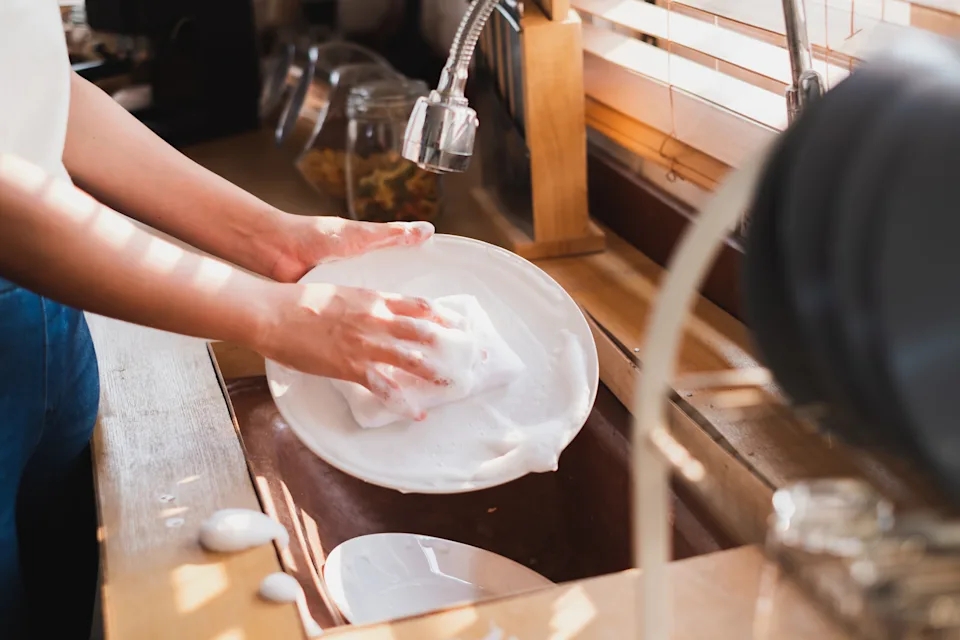
Moms who do not like to wash dishes, please raise your hand!
Every day to prepare ingredients for cooking is already tired enough, it is not easy to take a break to eat a meal, and after eating to face a mountain of dirty dishes, or choose not to see first, soak the dishes in water to soak, some even to the next day before washing. If you also have this habit, you should be careful, because the Japanese experts pointed out that dirty dishes if soaked for more than 10 hours, bacteria will increase to 480,000 times!
The University of Tokyo food safety research expert Mian Sekizaki pointed out that the top three bacterial food poisoning are: Bacillus, Staphylococcus aureus and Clostridium perfringens, and the dishes soaked in water after meals are actually the warmest home for these bad bacteria, Taiwan Food and Drug Administration reminded to soak dirty dishes containing food waste, oil and dirt together to accumulate, easy to let the bacteria such as Staphylococcus aureus breeding, while Professor Sekizaki also pointed out that the general after meals The tableware contains about 60 to 80 bacteria, and if soaked in water for more than 10 hours, the amount of bacteria in the water will increase to 29 million, an increase of more than 480,000 times, even by detergent and drying dishes is difficult to kill, easy to cause food poisoning at the next meal!

According to statistics, bacterial food poisoning is the biggest case of food poisoning every year, in addition to dirty dishes should be washed within an hour, and should also be dried as soon as possible after washing, after all, the humid environment is a breeding ground for bacteria, if there is no drier at home, then put the dishes in a ventilated place to drain the water and increase the air attack to speed up the drying time.
In addition, dishwashing cloths, rags, cutting boards are often in a humid state of kitchen supplies, but also likely to breed bacteria, mothers remember to regularly disinfect cleaning!

5 dishwashing tips to make dishes not greasy, more clean!
Washing sequence, water temperature are the tips, from now on no longer hate dishwashing time!
If there was a poll of the most hated household chores, dishwashing would definitely be in the top three! Many people hate washing dishes because they don’t like the greasy feeling, and many of the dishwashing detergents on the market will make your hands dry and rough after use.

Dishwashing Tip 1: Sort dishes according to greasiness
Before washing the dishes, did you throw the cups of tea, bowls of fruit and greasy plates into the sink together? This is a big no-no for dishwashing! Do not stack all the cups and bowls together when washing the dishes! This will make even cups that have only been used for tea greasy and hard to wash. Otherwise, it will turn the greasy dishes on one side into greasy dishes on both sides, and the effort to wash the dishes will be doubled.
Dish washingTip 2: cleaning order from non-greasy to greasy
After the first step to sort the dishes, then comes the cleaning order. Remember a principle not oily cups and dishes wash first. Such as tea cups, fruit plates, vegetable plates … These dishes can be washed first to avoid getting more grease and dirt that is difficult to clean, and then wash greasy dishes and pots that are more difficult to brush.
Dishwashing Tip 3: special brush wash first hot water rinse more clean
When cleaning greasy tableware, it is recommended that you can prepare a special brush for greasy dishes, brush the dishes first, and then use a vegetable cloth or brown brush to clean, so as to quickly clean the greasy dirt, rather than directly the whole lump of greasy dirt to clean, so that the tableware instead of washing more greasy! It is also recommended to use warm water when rinsing, as warm water can help carry away the grease and make the dishes cleaner!
Dishwashing Tip 4: choose the right detergent clean without hurting your hands
After understanding the correct concept of dishwashing, the most important thing is the detergent! The dishes are filled with food that we will eat, so the detergent should not be used casually. Some dishwashing detergents have an irresistible smell and even leave a residual smell on the dishes after rinsing, while others add too many chemical ingredients that make your hands dry and itchy after washing, and harmful ingredients that are invisible to the naked eye remain on the dishes, making people very uneasy.
It is recommended that you choose a dishwashing detergent with natural plant-derived essential oil ingredients, which will be fragrant and reassuring to use, or you can look for one with baking soda added.
Dishwashing Tip 5: Dry the dishes to avoid bacteria breeding
Finally the dishes are clean, but do not think that this is the end, after washing the dishes remember to hang to dry, or put in the dish dryer, do not always put in the sink. And make sure they are completely dry before putting them in the cupboard, because damp dishes can lead to bacteria growth if they are put directly into the cupboard! Especially for wooden dishes or cutting boards, you should pay special attention to them, otherwise you will have to replace them with new ones after they become moldy!